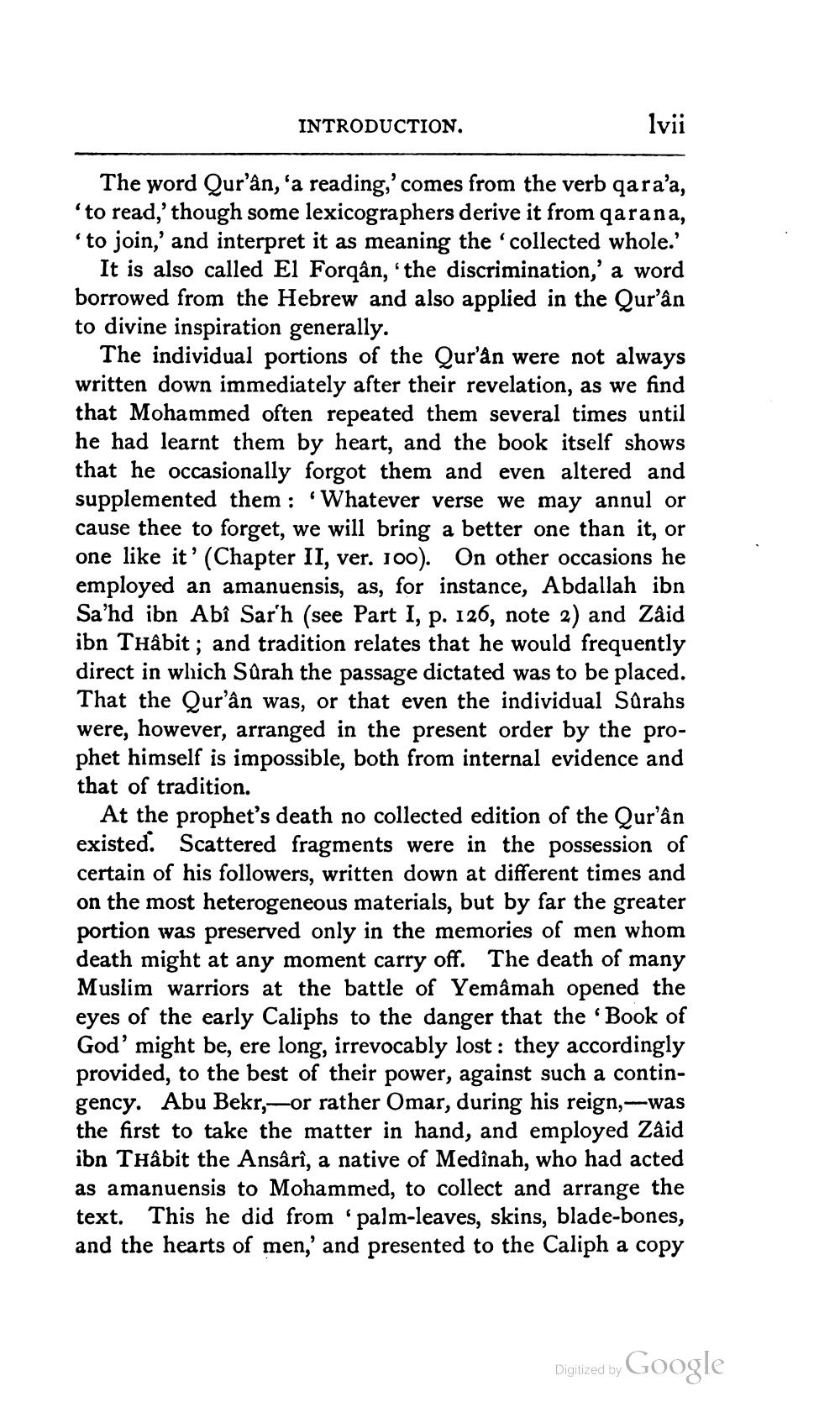________________
INTRODUCTION.
lvii
The word Qur'ân, 'a reading,' comes from the verb qara'a, 'to read,' though some lexicographers derive it from qarana, 'to join,' and interpret it as meaning the 'collected whole.'
It is also called El Forqân, 'the discrimination,' a word borrowed from the Hebrew and also applied in the Qur'ân to divine inspiration generally.
The individual portions of the Qur'ân were not always written down immediately after their revelation, as we find that Mohammed often repeated them several times until he had learnt them by heart, and the book itself shows that he occasionally forgot them and even altered and supplemented them: 'Whatever verse we may annul or cause thee to forget, we will bring a better one than it, or one like it' (Chapter II, ver. 100). On other occasions he employed an amanuensis, as, for instance, Abdallah ibn Sa'hd ibn Abî Sar'h (see Part I, p. 126, note 2) and Zâid ibn THâbit; and tradition relates that he would frequently direct in which Sûrah the passage dictated was to be placed. That the Qur'ân was, or that even the individual Surahs were, however, arranged in the present order by the prophet himself is impossible, both from internal evidence and that of tradition.
At the prophet's death no collected edition of the Qur'ân existed. Scattered fragments were in the possession of certain of his followers, written down at different times and on the most heterogeneous materials, but by far the greater portion was preserved only in the memories of men whom death might at any moment carry off. The death of many Muslim warriors at the battle of Yemâmah opened the eyes of the early Caliphs to the danger that the 'Book of God' might be, ere long, irrevocably lost: they accordingly provided, to the best of their power, against such a contingency. Abu Bekr,-or rather Omar, during his reign,-was the first to take the matter in hand, and employed Zâid ibn THâbit the Ansârî, a native of Medînah, who had acted as amanuensis to Mohammed, to collect and arrange the text. This he did from 'palm-leaves, skins, blade-bones, and the hearts of men,' and presented to the Caliph a copy
Digitized by
Google




